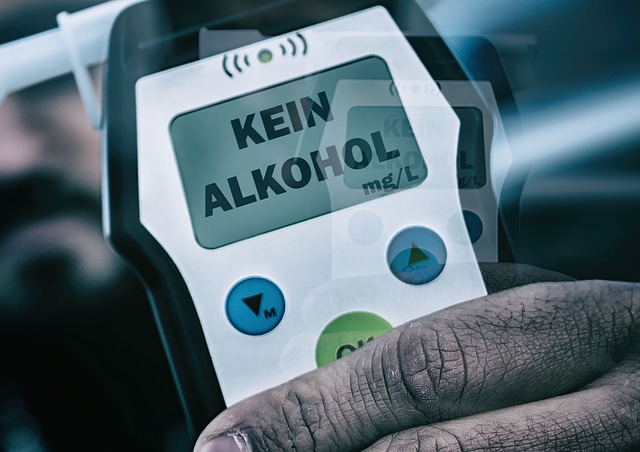A DUI conviction can have significant legal repercussions, including civil liabilities and long-term effects on employment and housing opportunities due to public records. However, individuals facing DUI charges can mitigate these impacts through criminal record expungement, which seals or destroys eligible convictions. Eligibility varies by jurisdiction, emphasizing the need for specialized legal guidance. After a successful expungement, rebuilding one's life involves verifying updated records, notifying relevant parties, establishing financial stability, and engaging in community activities to showcase rehabilitation. Consulting with a lawyer is crucial to navigate the process effectively.
In the aftermath of a DUI, understanding the liability for property damage is crucial. This article delves into the intricate relationship between drunk driving and potential property harm, exploring legal repercussions and available options. We discuss how a DUI impacts your criminal record, the expungement process to clear it, and strategic steps for recovery after such incidents. By addressing these aspects, we aim to guide individuals towards rebuilding their lives post-expungement, emphasizing the importance of navigating legal pathways effectively.
- Understanding Property Damage and DUI Liability
- The Impact of a DUI on Your Criminal Record
- Expungement Process: Clearing Your Record Post-DUI
- Legal Options After a DUI-Related Property Damage Incident
- Rebuilding Your Life: Post-Expungement Steps
Understanding Property Damage and DUI Liability

Property damage resulting from a DUI (Driving Under the Influence) incident can have significant legal implications, including liability and potential consequences for an individual’s criminal record. When a driver operates a vehicle while impaired, they may cause accidents that lead to property loss or destruction. This can include damage to other people’s property, vehicles, buildings, or infrastructure. Understanding DUI liability in these situations is crucial as it determines the legal responsibility of the at-fault driver.
In many jurisdictions, individuals convicted of DUI face civil and criminal penalties. Civil liabilities often involve compensating victims for property damage through insurance claims or direct settlements. Simultaneously, a DUI conviction can impact an individual’s future by affecting their ability to obtain certain licenses, including professional driving licenses, and could potentially impede efforts towards Criminal Record Expungement after DUI.
The Impact of a DUI on Your Criminal Record

A DUI conviction significantly impacts an individual’s criminal record, creating long-lasting consequences that extend beyond fines and community service. This legal mark can affect various aspects of a person’s life, including future employment prospects and opportunities for housing. Many states maintain extensive databases that include information about DUI arrests and convictions, making it easier for employers and landlords to access this data during background checks.
While the effects are far-reaching, there is hope for those seeking to move past a DUI. Criminal record expungement after a DUI is a legal process that allows individuals to have their records sealed or destroyed under specific circumstances. This can help alleviate the long-term stigma associated with a DUI conviction and open doors to new possibilities. However, eligibility criteria vary by jurisdiction, making it crucial for those facing charges to consult with legal professionals specializing in DUI law to understand their options regarding criminal record expungement.
Expungement Process: Clearing Your Record Post-DUI

After a DUI arrest, many individuals want to know how they can clear their criminal record. One effective way to achieve this is through the expungement process. Expungement is a legal procedure that seals or destroys certain criminal records, making them inaccessible to the public and potential employers. In the context of a DUI, expungement can help individuals move forward with their lives, especially if they have completed all required sentences and rehabilitation programs.
The expungement process varies by state, but generally, it involves filing a petition with the court, providing evidence of good conduct since the DUI arrest, and attending a hearing. If granted, the DUI conviction will be sealed or expunged from public record. This can significantly enhance an individual’s prospects for employment, housing, and other opportunities that may have been hindered by their criminal record. Remember, consulting with a legal professional is advisable to understand the specific steps and requirements in your state regarding criminal record expungement after a DUI offense.
Legal Options After a DUI-Related Property Damage Incident

After a DUI incident that results in property damage, individuals face not only legal charges but also potential civil liabilities. The first step to mitigate these consequences is seeking legal counsel. An experienced attorney can guide you through the complexities of DUI laws and help navigate the process of resolving any property damage claims.
One significant consideration post-incident is exploring options for criminal record expungement after DUI. Depending on jurisdiction, certain convictions may be eligible for expungement, sealing, or erasure, potentially reducing the long-term impact on future opportunities. This legal strategy can help individuals move forward, especially if they have taken responsibility for their actions and shown evidence of rehabilitation.
Rebuilding Your Life: Post-Expungement Steps

After successfully having your criminal record expunged due to a DUI conviction, it’s crucial to take proactive steps to rebuild your life and restore your reputation. The first order of business is to gain access to your official records to ensure accuracy and confirm that the expungement was processed correctly. This involves reaching out to the court where your case was heard and obtaining certified copies of any updated documents reflecting your clean slate.
Next, focus on updating important life aspects. Inform employers, landlords, and insurance providers about your expunged record. Provide them with the necessary documentation if required. Re-establish your financial standing by opening a new bank account and rebuilding your credit score, which can help when applying for loans or leases. Engage in community activities or volunteer work to demonstrate rehabilitation and potentially connect with others who have gone through similar experiences.
After navigating the legal consequences of a DUI, including potential property damage liability, understanding your options for criminal record expungement is crucial. While the process varies by jurisdiction, seeking legal guidance can help you clear your record and rebuild your life. Remember that, despite the challenges, there are ways to move forward after a DUI-related incident, ensuring a brighter future.






